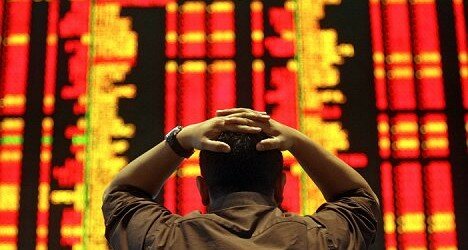
What Will Happen If Interest Rates Rise from Record Lows?
August 5th, 2013The Federal Reserve has held interest rates at zero (or arguably below) through its aggressive, risky, and untested quantitative easing program, which has been in place now for years. Home prices have also been held at unsustainable levels, as the central bank is buying worthless mortgage-backed securities at inflated values in an effort to keep home prices near their Greenspan-induced artificial peaks (which incidentally caused the 2007 housing crash).
Now that Fed officials are suggesting that QE might end soon, it’s time to consider what could happen if interest rates rise suddenly towards the end of the year. The Federal Reserve is set to lose a lot of money if rates go up, and, in fact, it has already suffered $192 billion in bond losses to this day simply by suggesting that QE might be on the way out, and, if interest rates rise further, all of its capital could be wiped out in a flash. Dallas Fed President Richard Fisher has indicated that the Fed owns too much of the economy and compared unwinding the QE program to untying a Gordian Knot, a type of legendary metaphorical tangle that can’t be unwound without cutting it apart. In the past few years, the Fed has tripled the monetary base, meaning intense price inflation is on the way if QE is left running for too long, and, if it isn’t, a massive interest rate spike is coming soon, which may itself reignite 2007′s housing market crash. Worse still, rising interest rates may not prevent some of the Fed’s inflationary measures from causing price inflation, potentially resulting in a wave of rising prices on items like food, fuel, and precious metals after home values have plunged downward. Will the Fed really begin tapering off of QE at the end of the year, and, if so, what could happen? Let’s consider.
Housing Crash 2.0
Interest rates are at record lows, yet, despite this, new home starts are at abysmal levels, and demand for new mortgages is declining. Home values are rising but are primarily being purchased by investors to use as rental properties. This can’t last at a higher interest rate.
If rates rise, credit markets will freeze up for most borrowers, reducing home prices precipitously. This means, at the very least, that the cessation of QE will restart the housing crisis at a time when the economy will still be suffering from a lack of jobs. Credit crunches, as one might recall from 2007, also interfere with employers’ payrolls and lead to nationwide layoffs. To make matters worse, these rising interest rates may not prevent inflation from hitting other sectors of the market, such as food, fuel, and precious metals, as those items’ prices are more sensitive to the monetary base and aren’t necessarily purchased on credit.
What If the Fed Waits Too Long to Let Interest Rates Rise?
Sadly, restarting the housing crisis is starting to look like the easy way out when one considers what might happen if the economy takes a turn for the worse between now and the holiday season. The Fed may find itself trapped in a scenario where ending QE would cause it to go bankrupt, which may discourage the bank from ending the program. Investors have moved away from gold and silver recently due to the widespread belief that the Fed is about to end QE, but, if it doesn’t do so quickly enough, investors may begin to fear a spike in inflation. If unemployment worsens and the Fed decides not to end QE by the end of the year, an inflationary or even hyperinflationary event might take place. The Fed has jammed the economy in-between a rock and a hard place (either a recession or an inflationary event and, possibly, both), depending on when it decides to unwind quantitative easing.
Silver Circle is showing now on Video on Demand platforms! Check it out on our watch online page and find out about local theater showings of the film and other special events on our -->event page -->.


